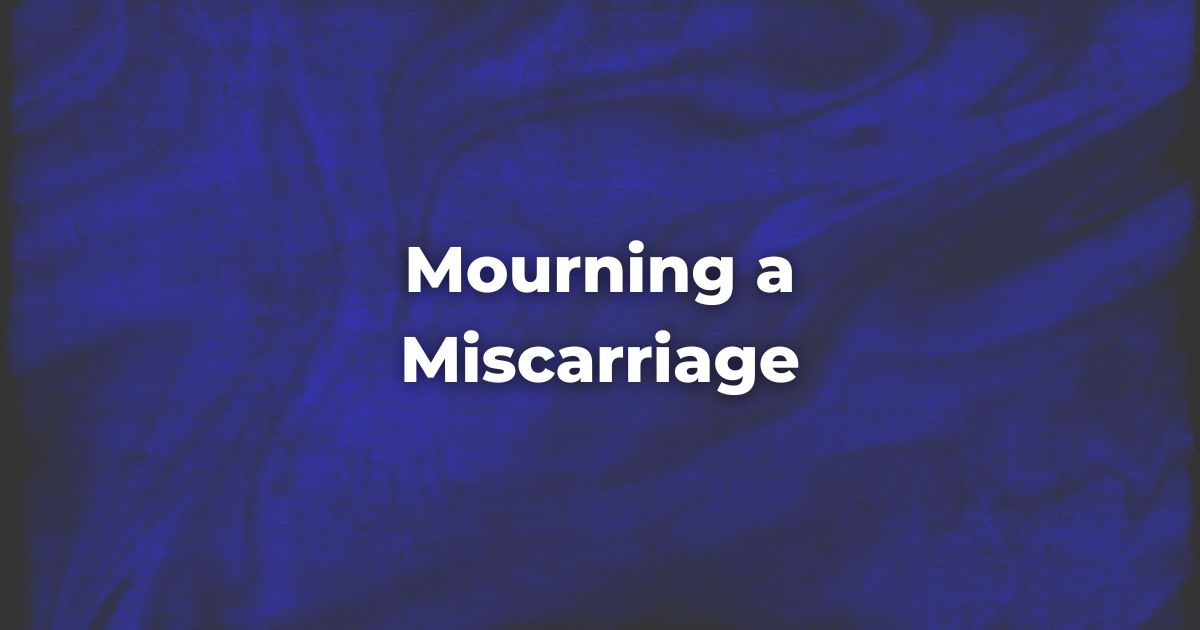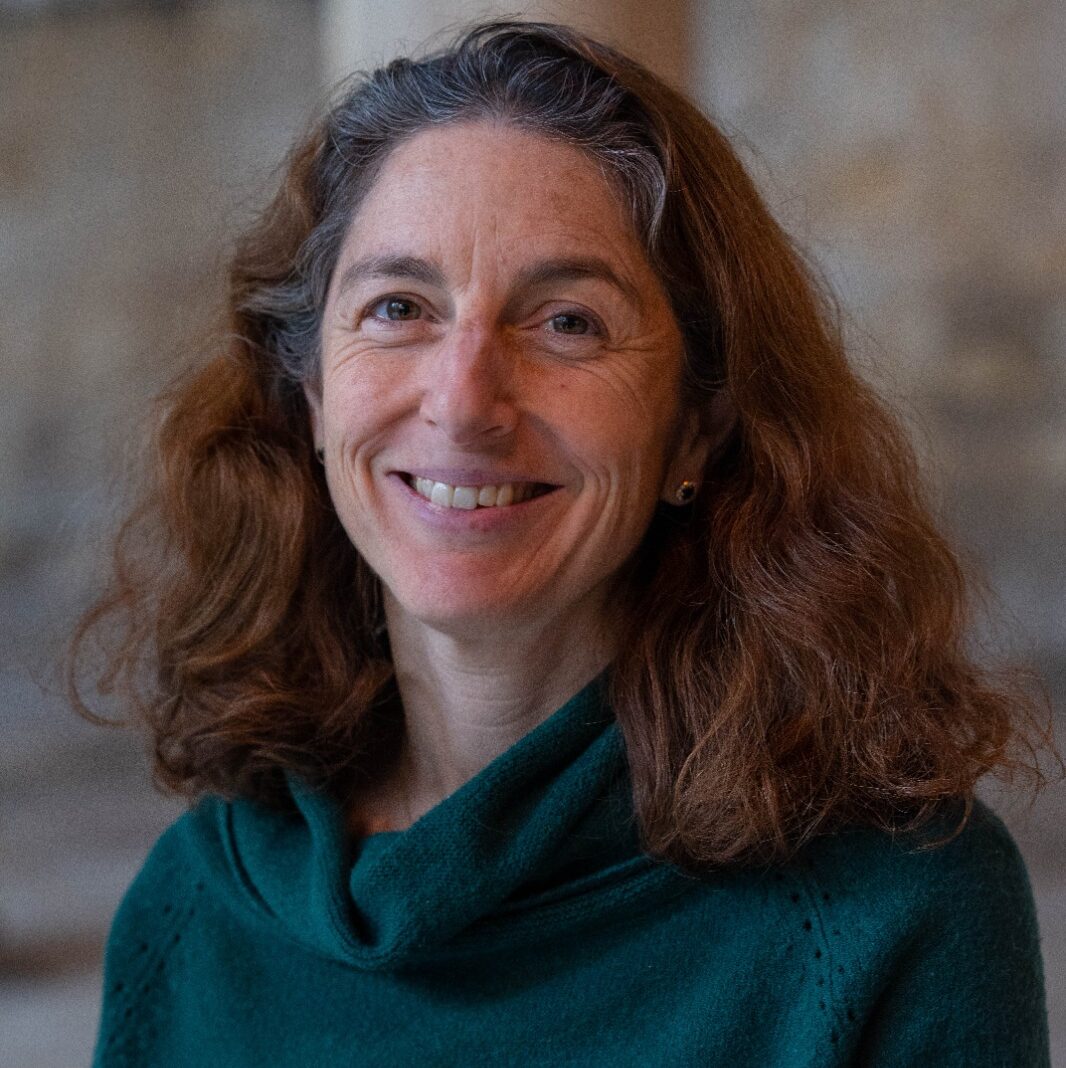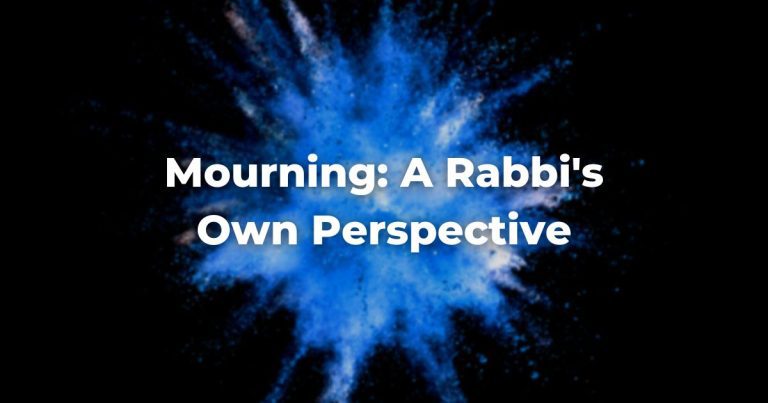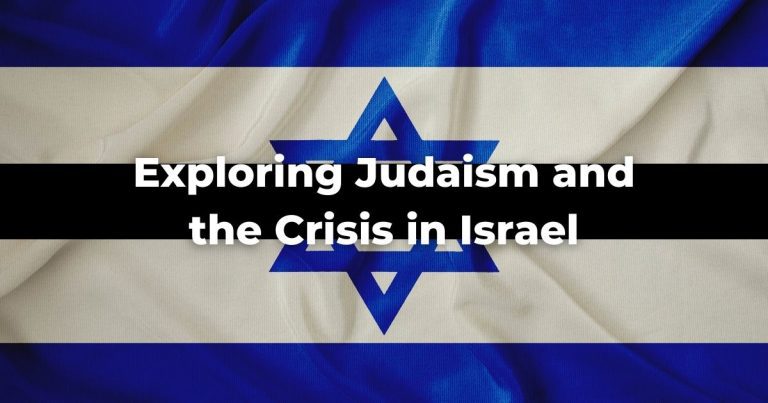How can Jewish wisdom guide me through miscarriage or help me support someone who has experienced one?
Jewish law has rituals for almost every aspect of the lifecycle: circumcision, bar or bat mitzvah, conversion, marriage, divorce, illness, and death. Yet, there is no specific ritual for miscarriage.
Why is this so? What rituals have been created to fill in the missing spaces?
Why is there no set ritual for miscarriage?
For better or for worse, Jewish law defines life as starting at birth (Mishnah Niddah 3:7 and Babylonian Talmud Yevamot 69b). While the status of the fetus is acknowledged (Exodus 21:22-25 and Babylonian Talmud Sanhedrin 84b), and though rabbis consider that the soul (neshamah) enters the body before birth (Genesis Rabbah 34:10), the fetus is considered a person only from birth (Rashi on Babylonian TalmudReferring to one of two collections, the Jerusalem and Babylonian Talmuds, edited in the 6th century, that contains hundreds of years of commentary, discussion, and exploration of the ideas in the Mishnah. One could describe it as Mishnah + Gemara = Talmud Read more Sanhedrin 72b).
Judaism’s approach to abortion results in being more permissive than some other approaches. However, to be clear, Judaism takes abortion seriously and requires a good reason, usually the mother’s physical or mental health.
(See more: What does Judaism say about Abortion?)
On the other side of the coin, it means that a miscarriage has not been considered a death on the same scale as a loss after a full-term pregnancy or any time afterwards.
This can have benefits for the community and individuals who do not have the obligation of burial in an individual grave in a Jewish cemetery, shiva, shloshim, unveiling, and the obligation to say Kaddish (Shulkhan Arukh Yoreh De’ah 374).
But this lack of framework for mourning the loss of potential life can also leave parents (and siblings) feeling doubly abandoned, first by the loss of hopes and dreams, and then by lack of religious and communal recognition.
Over the past few decades, communities and individuals have experimented with creative solutions to these dilemmas, trying to support individuals without imposing too burdensome an obligation on the community.
How can I support a friend going through a miscarriage or pregnancy loss?
The appropriate response depends on the circumstances, timing, and many other factors. It also depends on what the person who experienced miscarriage chooses to share and with whom, and what types of support they seek.
One modern approach is to consider the parents as people in need of healing and encourage community members, friends, and family to visit as a form of bikur holim (visiting the sick). The mitzvah of bikur holim requires some time and attention by supporters, but is not the same level of commitment as a full shiva with prayers at the home, etc.
Ask what kind of support would be welcome: practical (food, a run to the pharmacy, picking up other kids from school); emotional (listening without judgment and without jumping to their own stories); spiritual (trying to learn from the experience); or other forms of support.
Make sure to visit at convenient times, not stay too long, and respect the other person’s privacy and dignity.
In Hidden Heartbreak: The secret pain of miscarriage in the Jewish community, Kali Daugherty suggests paying attention to language.
Sayings like “You can try again” or “This was not meant to be,” though well-intentioned, often come across as patronizing or minimizing the person’s pain. They can leave a person feeling even more lonely, angry, or detached from everything the tradition represents.
“Instead of using language that implies that this child was not important or that this child was not supposed to be here, I would suggest listening to the woman’s feelings. Offer condolences and not instructions on how to grieve…”
(pp. 21-22)
An article by Amy Klein suggests additional sensitive language that people can use, as well as phrases to avoid.
Daugherty reminds us that painful memories may resurface at any time in the future. Mourning does not end tidily, and people do not “get over” loss on a convenient calendar—or ever.
“Anytime a woman who has had a miscarriage goes to a doctor appointment and is asked ‘How many times have you been pregnant?’ [she remembers] the number of pregnancies, not the number of children she [has had]. When people see children that are the age that the child they lost would have been, they may wonder what their child would have been like if he had made it to this age. There are constant reminders of loss which cannot be avoided…”
(Daugherty, pp. 22-23)
Friends can check in around significant dates (when the child would have been born, had birthdays, mother’s day etc.) and offer unobtrusive but sincere support.
Spiritual direction, pastoral care, support groups or individual counseling can also help people navigate the loss.
If you or your partner has had a miscarriage:
It is up to you whom to tell and how to mark the loss.
You may consider creating a ritual of your own or using one that has been created for this occasion.
New Rituals: Prayer and Mikveh
Some of the rituals center around immersion in a mikveh (ritual bath) or other body of natural water as a symbol of cleansing, healing, or renewal of potential life. (Taking the Plunge: A Practical and Spiritual Guide to the Mikveh (p. 156) and Mikveh).
Immersion can be a stand-alone experience or incorporated into a ritual with prayer, song, blessing, etc. It can be done alone or with a group of friends, at home, at a Rosh Hodesh circle, in nature, at a lake or ocean, or at a mikveh.
Mayyim Hayyim community mikveh in Boston has been a pioneer of creative mikveh uses. Their miscarriage rituals combine immersion with prayer, poetry and kavvanot (statements of intention before immersion).
Ritualwell.org is a wonderful anthology of rituals for all occasions. You can choose one of the options or cut and paste to make your own.
Rabbi Naomi Levy’s “A prayer when one suffers a miscarriage” is a popular choice.
Judaism also encourages personal, spontaneous prayer as an outpouring of the heart. You can write a prayer ahead of time or say, sing or think whatever comes to mind.
[If you go to a mikveh, it can be any time after post-partum or menstrual bleeding has ended (plus 7 additional days according to rabbinic tradition). Most mikvehs are open after sunset or by appointment. If you go to a lake or river or ocean, you have more flexibility and can go during the day and with a friend instead of the mikveh attendant, though a welcoming community mikveh attendant might be very sensitive and add to your healing experience.]
Last Words
However you choose to mark—or not mark—this life event, hopefully you will be surrounded by people eager to listen and support you on your healing journey.
Author
-

Rabbi Berkowitz lives in Jerusalem where she performs bat and bar mitzvah ceremonies for people from all over the world and is part-time development director at Kehilat Kol HaNeshama. The author of Taking the Plunge: A Practical and Spiritual Guide to the Mikveh and many articles, she has taught Judaism and Spiritual Care at a variety of colleges in Israel and the US. Miriam is one of Israel’s first certified hospital chaplains and co-founder of Kashouvot: Center for Spiritual Care in Israel. She also creates hand-made ceramic Judaica and is a licensed Israeli tour guide. www.ravmiriam.com
View all posts






